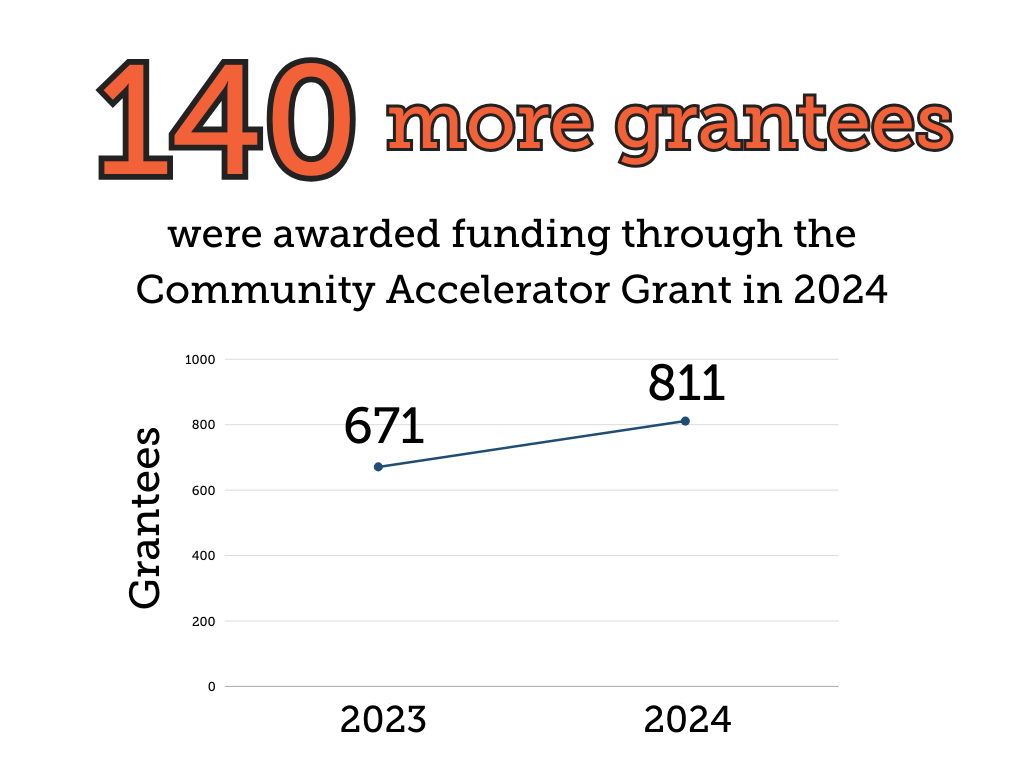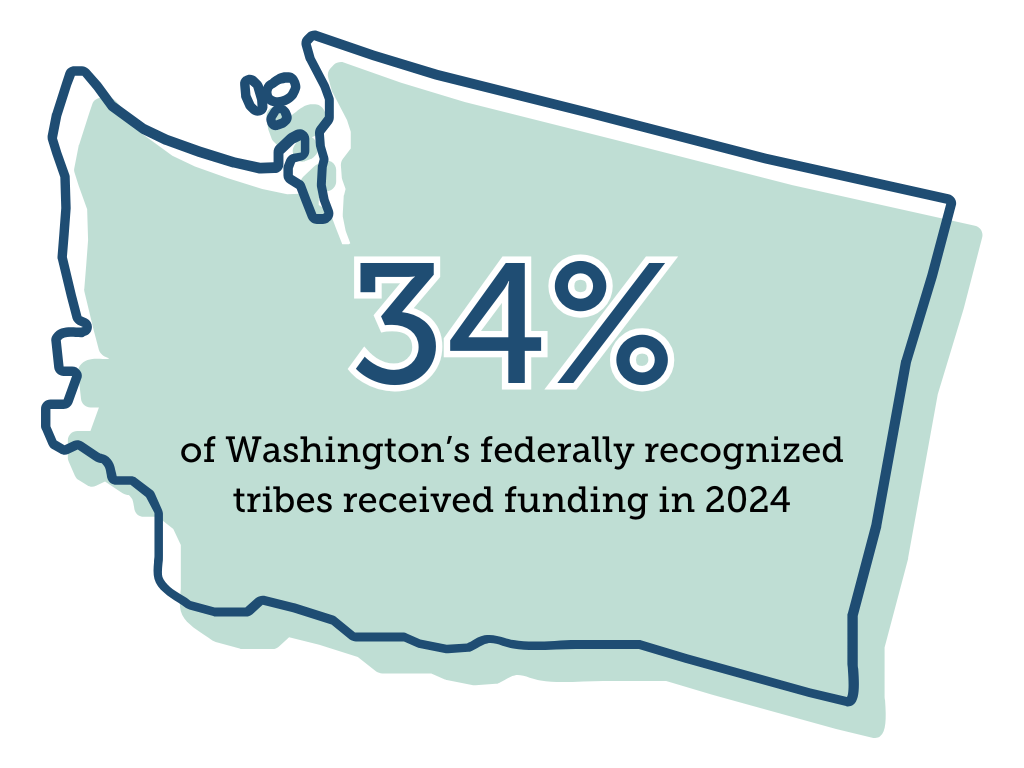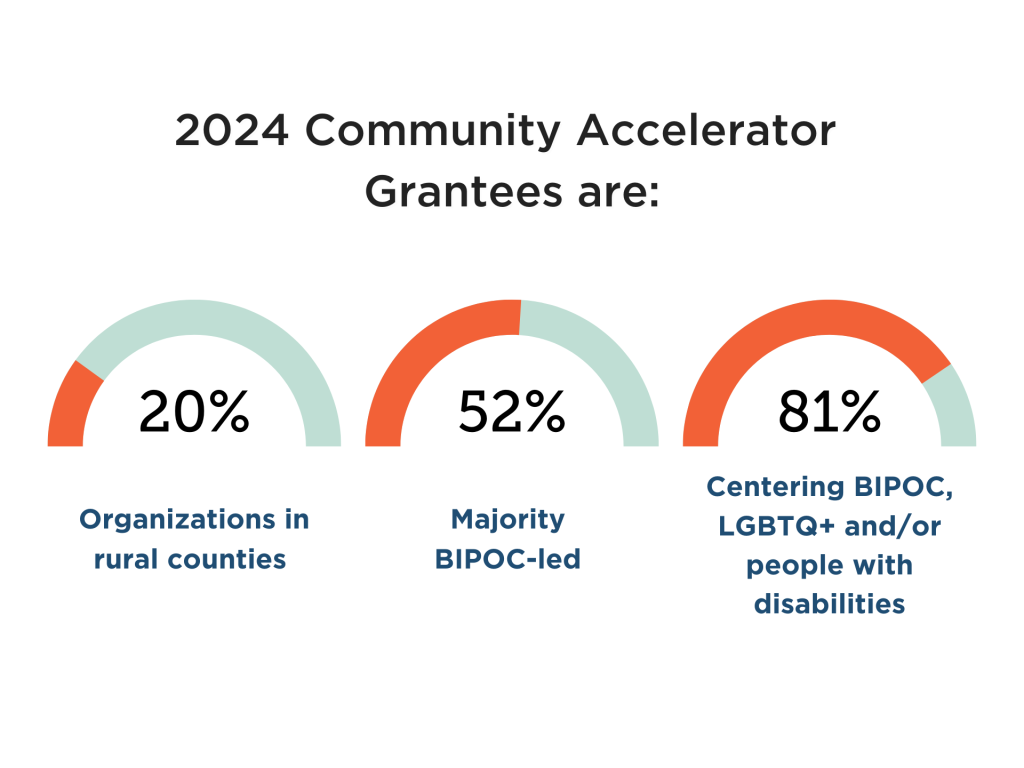
Grantmaking
Grantmaking
ArtsFund distributes grants in several ways, including our Allocations grants and a variety of targeted funds. Since its founding, ArtsFund has strengthened the community by supporting over 1,000 arts and cultural organizations in Washington State with approximately $130 million awarded in grants. FY24 was the largest amount of all-time grantmaking in ArtsFund’s history, reaching 37 out of 39 counties in Washington State.
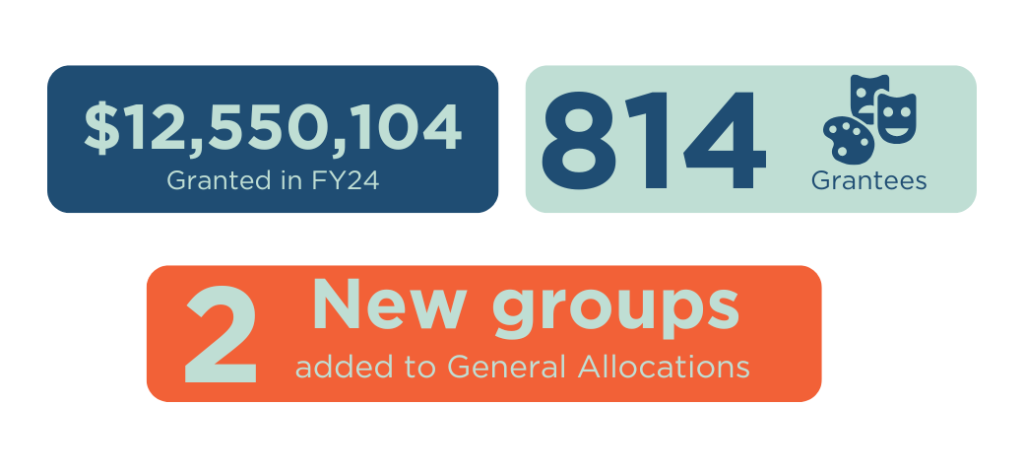
Community Accelerator Grant
The Community Accelerator Grant, funded by the Paul G. Allen Family Foundation, is a historic $10 million investment in Washington’s arts and culture sector. These grants delivered essential capital to Washington’s cultural organizations, including fiscally sponsored and tribal entities, whose primary missions are to produce or support arts and cultural activities. In FY23, the first year of the program awarded 671 organizations throughout 35 of Washington’s 39 counties. In FY24, the number of counties increased to 37 with 811 grantees receiving funding.
Community Accelerator Grant Program
2024 Community Accelerator Grant Recipients
All counties with average award size over $15,000 had a population density of less than 100 people per square mile, demonstrating a commitment to getting funding to rural communities.
In the Community Accelerator Grant’s second year, 140 more grantees were awarded funding, and 28% of all grantees were first-time applicants. In 2024, 20% of the Community Accelerator grantees represented rural populations (as defined by Washington State); 52% report their staff or board was majority BIPOC, LGBTQ+, or people with disabilities; and 81% created or provided programming that centered one or more of these communities.
How are grantees planning on using the funds?
Plans to allocate funding towards programming rose 8% in the program’s second year. Grantee responses reported a 3% decrease in funds going towards facilities upgrades, and a similar percentage of funds going towards salaries and labor.
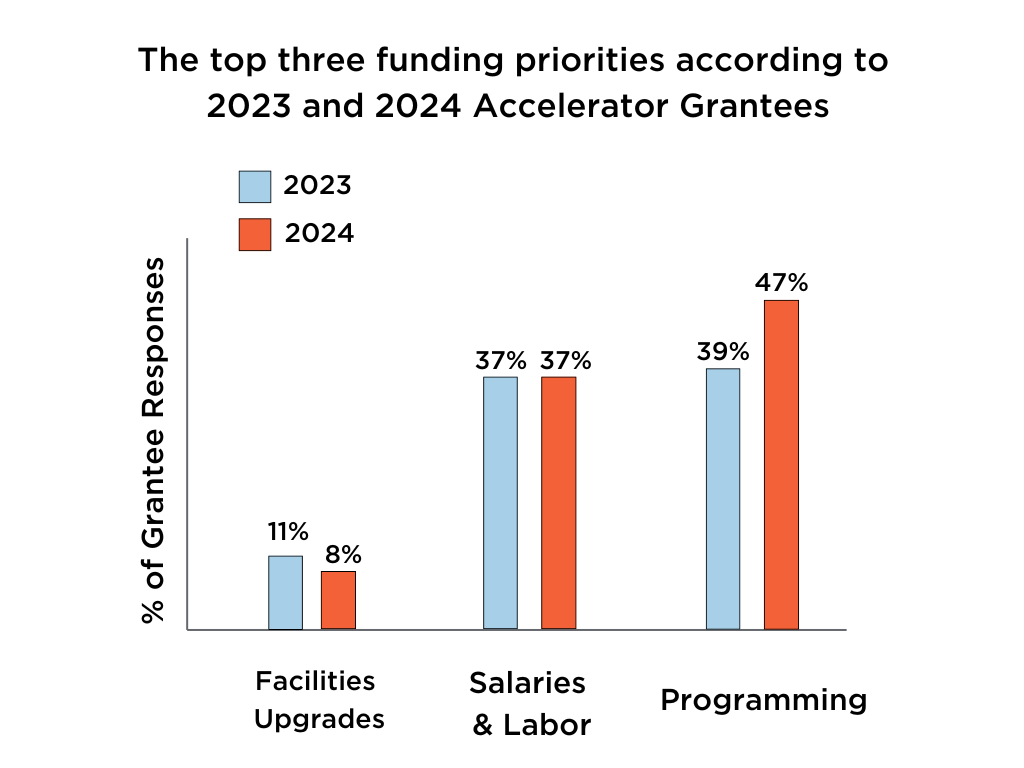
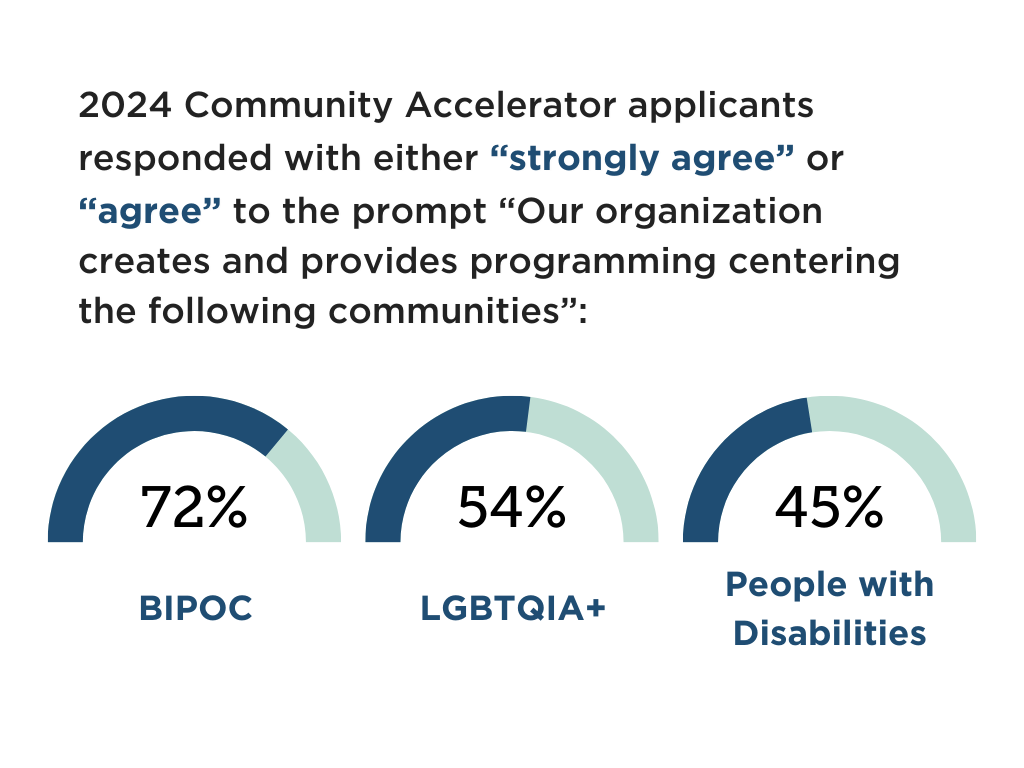
CAG Case Studies
Following the 2024 grantee announcement, we interviewed eight grantees to learn more about their organizations and how the Community Accelerator Grant might impact their work. These interviews, shared through the perspectives of the 2024 grantees, provide a deeper understanding of the program’s impact.
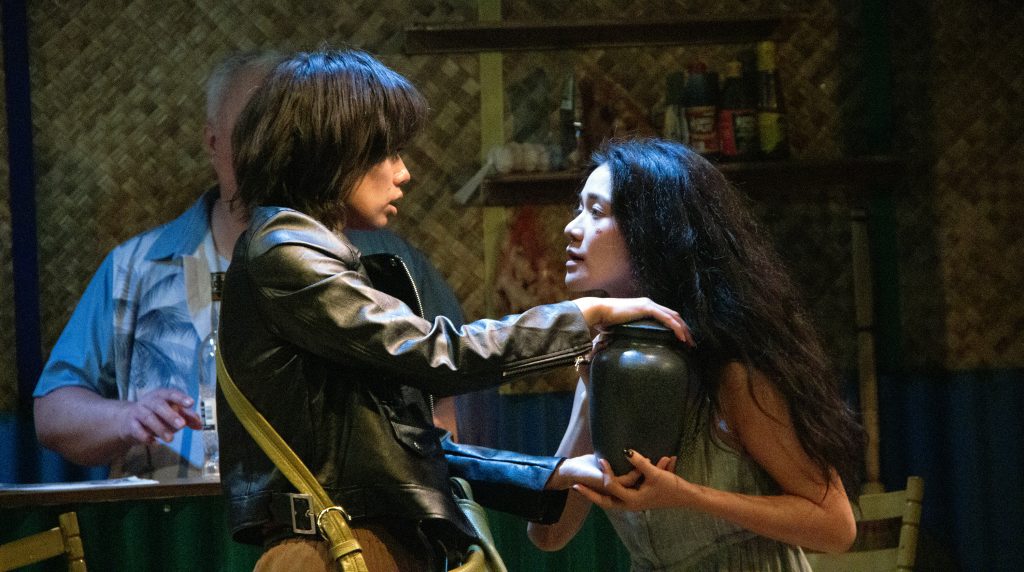
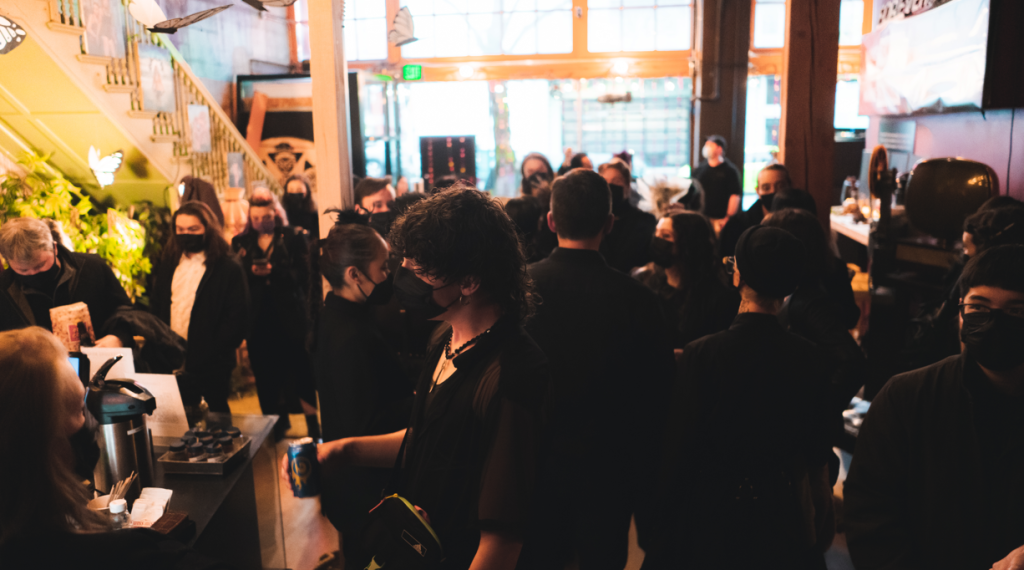
Left: Pork Filled Productions, Photo courtesy of organization.
Right: Bioluminescent Films, Photo courtesy of organization
Youth Arts Opportunity Fund
The Youth Arts Opportunity Fund (YAOF) aims to increase access to participation in meaningful, robust, sustained arts experiences for youth with low socioeconomic status or who have historically lacked access to arts programs. YAOF grants provide flexible operation funds to arts organizations that demonstrate an authentic commitment to this work. In FY24, ArtsFund received 50 eligible applications for YAOF funding and awarded grants to 30 organizations, marking the highest distribution in the program’s history with a total of $208,600.
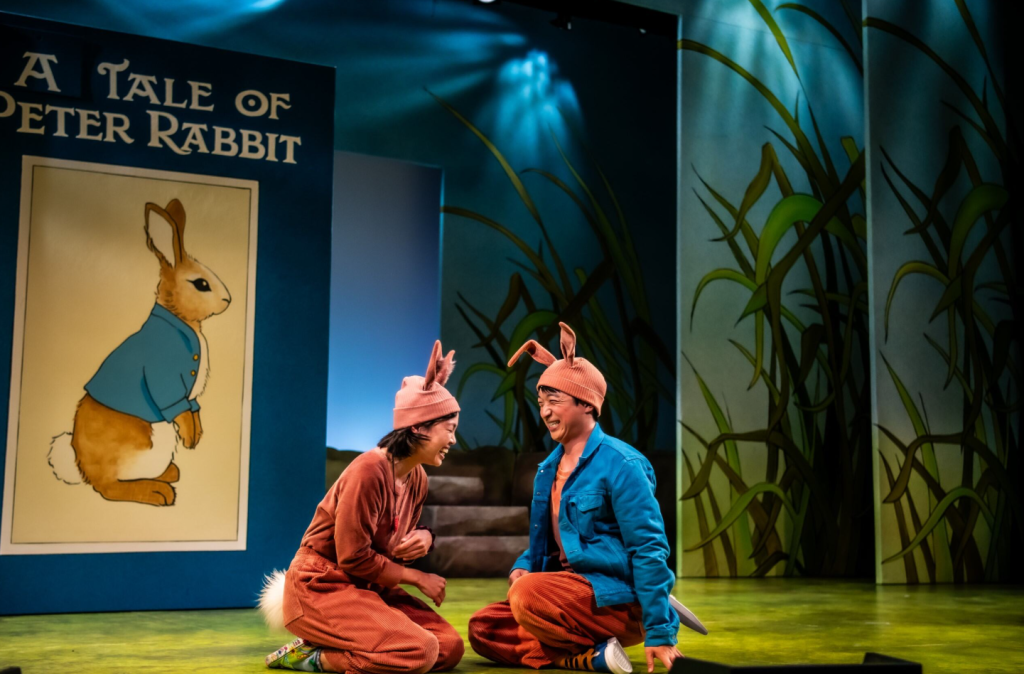
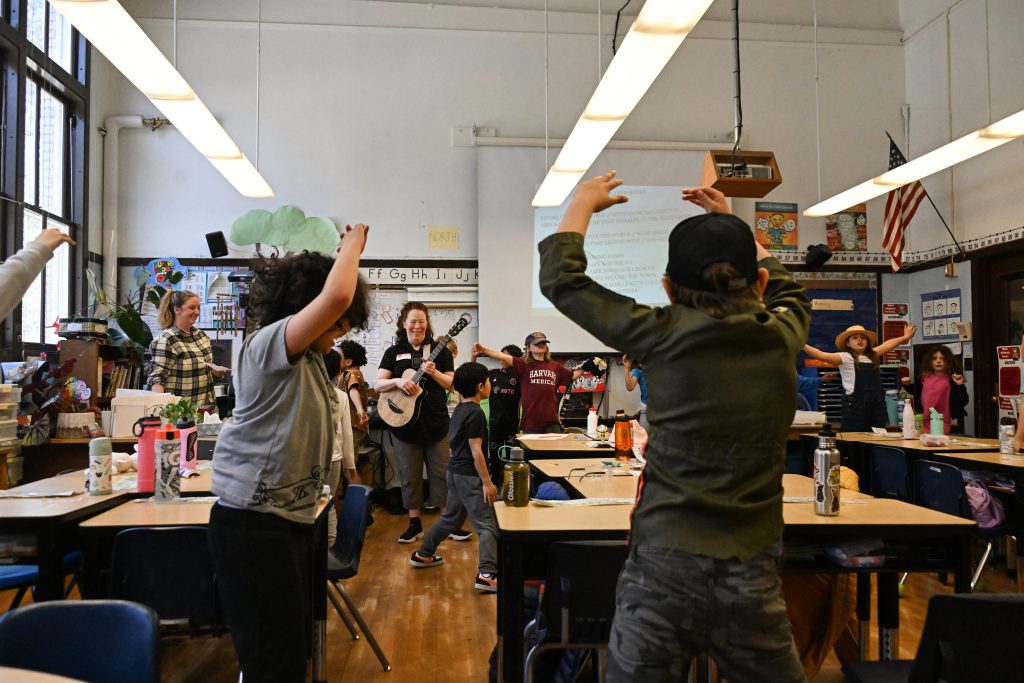
Left Photo: Seattle Children’s Theatre, A Tale of Peter Rabbit, photo by Truman Buffett
Right Photo: Jack Straw Cultural Center, McGilvra Elementary Poetry and Song 2024, Photo by Sherwin Eng
“This additional unrestricted general operating support helps us focus on our mission of serving youth through live theatre and arts education. We appreciate ArtsFund’s continued faithful support.”
Charissa Adams Institutional Giving Manager, Seattle Children's Theatre
Annual Allocations
Allocations grants are our flagship annual grant program. Through Allocations, ArtsFund issues unrestricted grants to arts and cultural nonprofits in the Puget Sound region. These grants support organizational health and strengthen the arts ecosystem.
ArtsFund’s allocations are awarded by a panel of community members who engage with ArtsFund in a thorough vetting process, evaluating application materials and interviewing the leadership of arts groups.
Meet Two New Allocations Grantees
TASVEER

Tasveer, founded in 2002 in Seattle, is dedicated to inspiring social change through South Asian films, art, and storytelling. Their mission is to provide a platform for filmmakers and storytellers, using narratives to amplify underrepresented voices. Guided by principles of creativity, dialogue, education, and inclusivity, Tasveer strives to produce high-quality programs that foster understanding of South Asian cultures. Through events like the Tasveer South Asian Film Festival and the Tasveer Film Fund, the organization engages the community and builds a more informed society.
Learn more about Tasveer
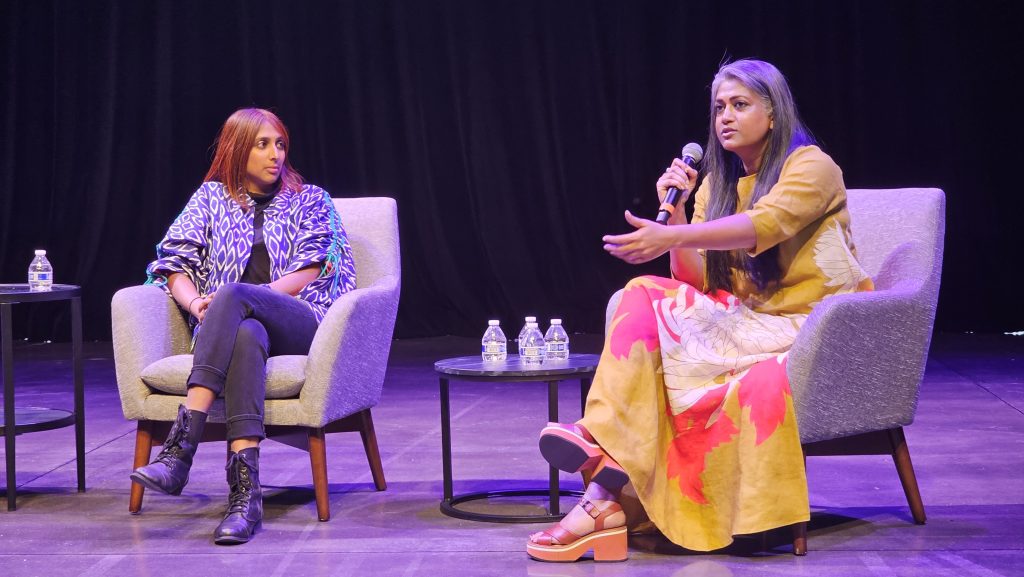

Photos courtesy of Tasveer
SOUND THEATRE
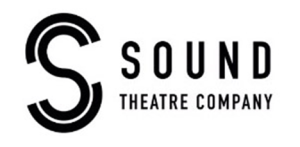
Sound Theatre Company, established in 2006 in Seattle, empowers artists to express the dignity and diversity of the human experience, aiming to move audiences toward a more just and compassionate world. Committed to inclusivity and diversity, Sound Theatre integrates these principles into its programming, casting, hiring, audience engagement, and volunteer recruitment practices. The organization’s core values include community, collaboration, integrity, excellence, innovation, and mentorship, all contributing to its mission of creating high-quality theatrical work inspired by language, music, and humanity.
Learn more about Sound Theatre
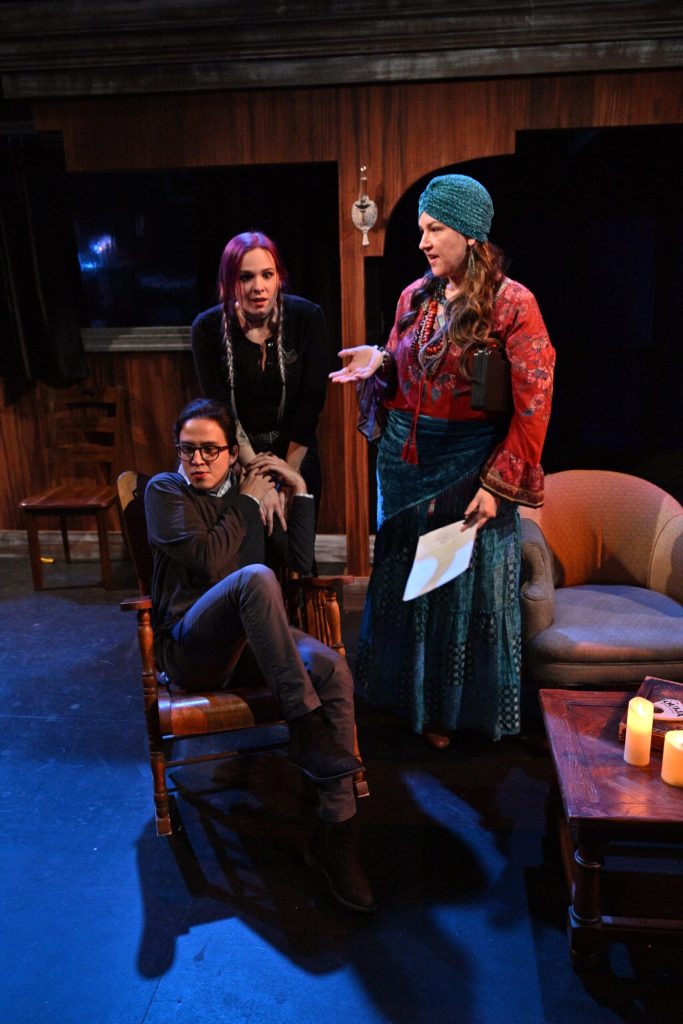
Photo: Autocorrect Thinks I’m Dead by Aimee Chou, photo courtesy of Sound Theatre Company
